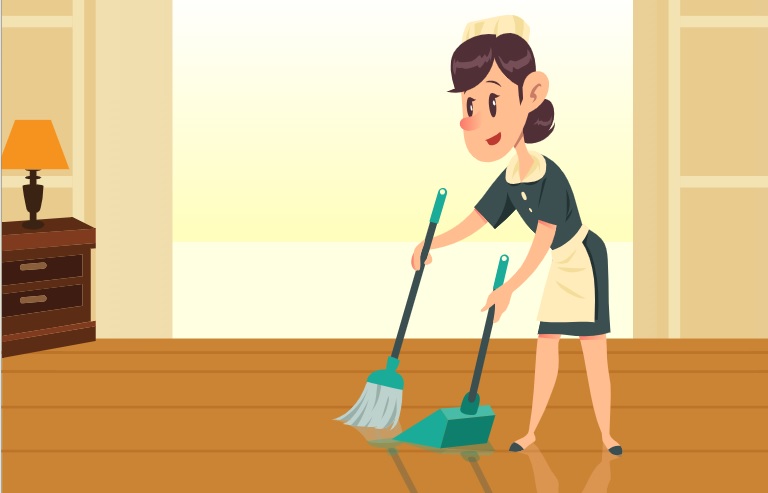How to Conduct Proper Training and Orientation for Your New Domestic Helper in Singapore
Hiring a new domestic helper is a big step for any Singaporean household. For one, it’s common practice
in the country for housekeepers to live with the family that employs them. This means you’re not just
hiring a helper, but also, in some ways, adding a member to your household. Even if you’ll be hiring a
part-time live-out helper, they’ll still play a significant role in taking care of the members of your family
and keeping your household up to scratch.

All of this is to say that giving your new domestic helper proper training and orientation is an
important step in introducing them to your household. Doing this helps ensure that your working
relationship will be as smooth-sailing as possible, and that both parties understand their roles,
responsibilities, and mutual expectations. Ultimately, this leads to a more productive setup.
Once you’ve found a domestic helper in Singapore, it’s best to prepare for your first meeting shortly
afterwards. Familiarise yourself with the essential aspects of training and orienting a new domestic
helper, which are listed below, so you can start off on the right foot.
Ensuring Clear Communication and Expectations
Open and clear communication is the foundation of a successful employer-helper relationship, and this
is something that you should practise from the get-go with your new helper. During the orientation
process, take the time to discuss your household routines, preferences, and expectations. Clearly
communicate the tasks and responsibilities your helper will be handling, ensuring they understand your
specific requirements and standards. Also, encourage your helper to ask questions and provide them
feedback in return. This will help cultivate an environment of open communication from the beginning.
Understanding Different Cultures
Many of the domestic helpers who work in Singapore are originally from outside the country. Therefore,
it’s not unusual for you and your new domestic helper to have cultural differences. To address these
differences, you need to accept that you need time to adjust. You must also make an effort to
understand your helper’s culture and background, and in turn share information about your family’s
customs and practices. For instance, if cooking is one of the responsibilities of your helper, teach them
about your family’s favourite dishes and be willing to try some of their recipes. Be respectful and open-
minded, as sharing cultural differences can enrich your household dynamic and broaden your horizons.
Providing Comprehensive Training
Providing comprehensive training is essential to equip your domestic helper with the necessary skills to
perform their duties efficiently. Remember that not everyone tackles household chores the same way as
you; your new helper’s standards may also be different from what you’re used to.
Begin your helper’s training by familiarising them with your household layout, how to operate and
maintain appliances, and how to use your preferred cleaning products. Demonstrate your preferred
cleaning and cooking methods, emphasising any specific instructions or techniques that your helper has
to learn. Also, train your helper in laundry procedures, childcare routines, and any other tasks relevant
to your household. If the housekeeper needs extensive lessons, consider looking for additional training
sessions or classes to enhance their skills.
Establishing Personal Boundaries and Privacy
Establishing clear boundaries and privacy expectations is crucial for a respectful and comfortable living
and working environment for both you and your helper. Discuss personal spaces, family privacy, and the
handling of confidential information. If you don’t want images of your children, pets, or home to be
posted online, for instance, express this clearly to the helper. Ensure that your helper understands the
importance of respecting boundaries and maintaining confidentiality within the household. Also,
encourage your helper to ask questions if any boundaries need clarification or adjustment.
Training With Safety and Emergency Protocols
Safety should always be a top priority when training your domestic helper, especially if they’ll be the one
in charge when you’re not at home. Educate them about fire safety measures, including where to find
the fire extinguishers and the location of emergency exits. Provide basic first aid training as well, and
ensure the helper knows how to respond in case of accidents or emergencies. It would also be helpful to
include the helper when planning and practising emergency drills so they know what is expected of
them during these situations. Share important contact numbers, such as emergency services and close
family members or neighbours, so they can quickly seek assistance if needed.
Building Rapport and Trust
Building rapport and trust with your domestic helper is important for a fruitful and amiable working
relationship. After all, you don’t want a complete stranger to be living in your house. Get to know the
people who help run your household on a personal level. You can develop rapport by showing
appreciation for their efforts, acknowledging their contributions to the household, and regularly
checking in with them to address any concerns. It’s also a good idea to give them feedback and offer
guidance whenever the opportunity arises. With these simple steps, you can foster a positive working
environment and create an atmosphere of mutual respect, trust, and effective communication.
Welcoming a new domestic helper the right way will help you set the stage for success and productivity.
By investing time and effort into training and orienting your domestic helper, you create a supportive
environment that benefits both your household and safeguards the helper’s well-being. This, in turn, can
contribute to a positive employer-helper relationship and ensure that expectations of both parties are
met.
